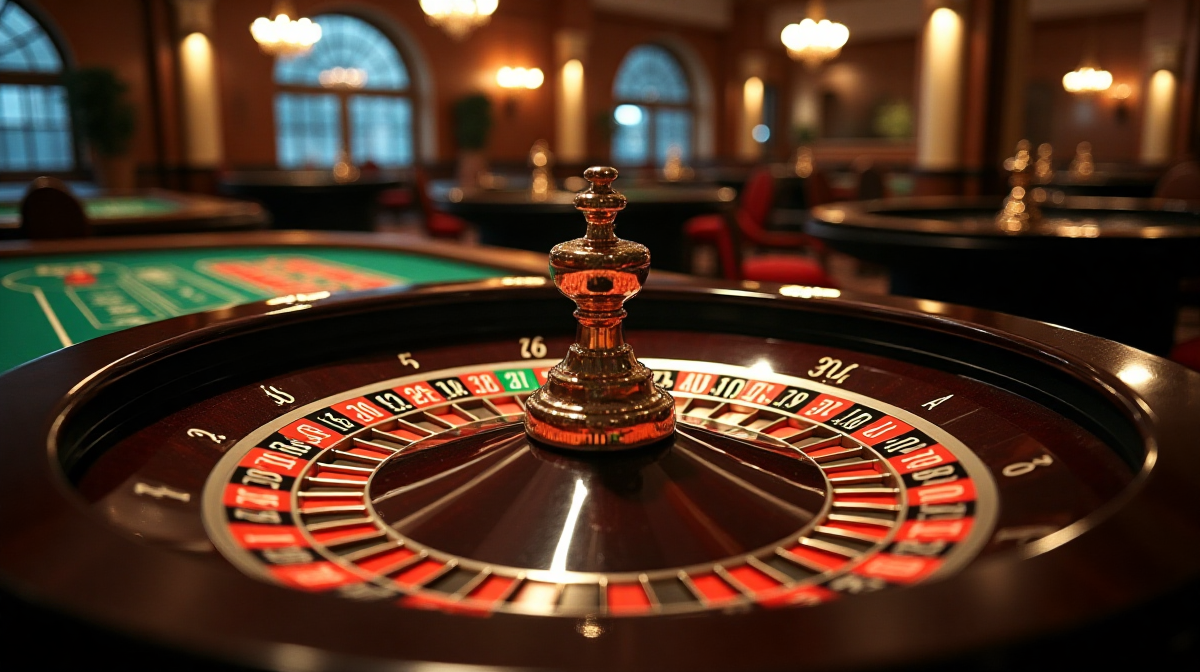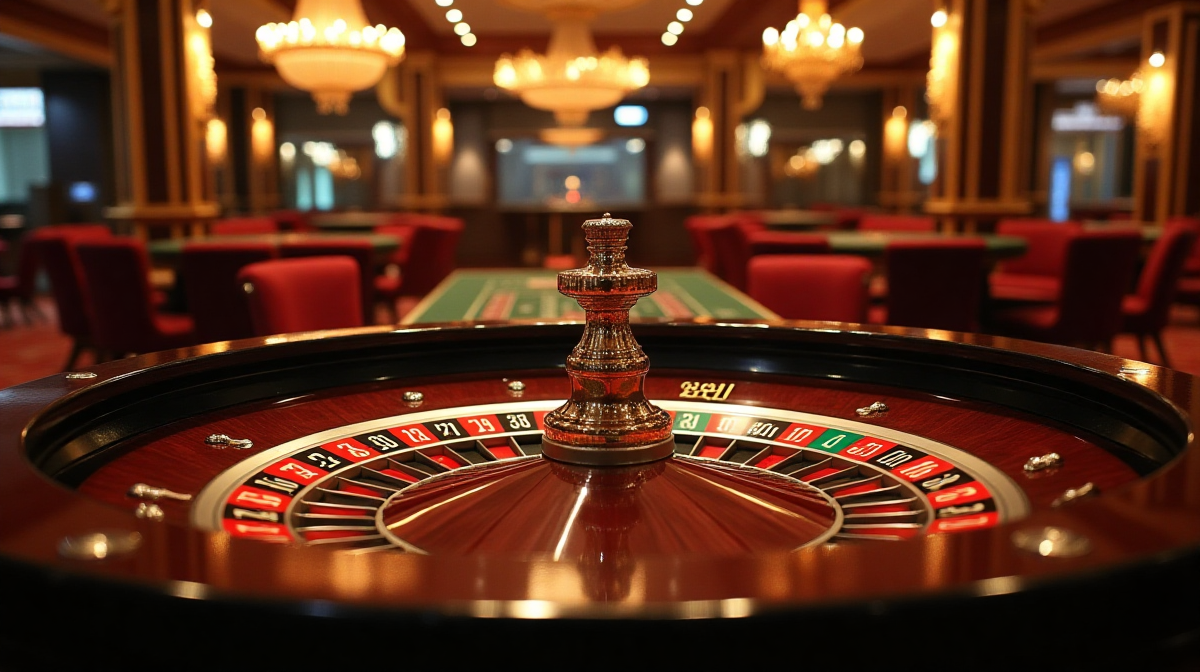Roulette Meaning: Decode Your Winning Chances
Introduction: Understanding the Allure of Roulette
What is Roulette? A Historical Overview
Roulette, meaning “little wheel” in French, has captivated gamblers for centuries. Its origins can be traced back to 17th-century France, with Blaise Pascal inadvertently creating a rudimentary version while attempting to invent a perpetual motion machine. Over time, the game evolved, spreading through Europe and eventually reaching America. The modern roulette wheel, with its iconic red and black numbers, is a symbol of chance and excitement. While many seek a winning formula, understanding the game’s history provides context for its enduring appeal. Some even seek a “star bet” hoping to strike it rich.
Why is Roulette So Popular? The Psychology of the Game
The enduring popularity of roulette stems from a unique blend of simplicity and complexity. It's easy to learn – you simply bet on where the ball will land – yet offers a surprisingly wide range of betting options. This combination creates a sense of control, even though the outcome is ultimately determined by chance. The thrill of the spin, the anticipation of the result, and the potential for a big win all contribute to the game's addictive nature. Many players turn to star bet prediction services, hoping to gain an edge, though their reliability is often questionable.
Busting Common Roulette Myths
A plethora of myths surround roulette, often perpetuated by hopeful gamblers. One common belief is that the wheel has a “memory” and that certain numbers are “due” to hit. This is demonstrably false – each spin is independent of the last, making the gambler's fallacy a significant trap. Another myth suggests that systems like Martingale can guarantee profits, which is also untrue due to betting limits and the inherent house edge. The search for a reliable bet star often leads to disappointment based on these flawed beliefs.
Decoding Roulette: The Basics You Need to Know
Understanding the Roulette Wheel Layout
The roulette wheel comes in two primary variations: European and American. The European wheel features 37 numbers (0-36), while the American wheel adds a 00, bringing the total to 38. This seemingly small difference significantly impacts the odds, as we’ll see later. The arrangement of red and black numbers is also strategically designed to prevent patterns.
Inside Bets vs. Outside Bets: A Detailed Explanation
Roulette bets fall into two main categories: inside and outside. Inside bets are placed on specific numbers or small groups of numbers on the inner section of the table. Examples include Straight Up (betting on a single number), Split (betting on two adjacent numbers), and Corner (betting on four numbers). Outside bets, on the other hand, are placed on broader categories like Red/Black, Odd/Even, and High/Low, located on the outer edges of the table.
Roulette Betting Options: A Comprehensive Guide
Beyond the basics, roulette offers a diverse range of betting options. A Street bet covers a row of three numbers, while a Six Line bet covers two adjacent rows. A Corner bet, also known as a Square bet, covers four numbers arranged in a square. The more numbers you cover with your bet, the higher the probability of winning, but the lower the payout. Understanding these options is crucial for informed gameplay.
Payouts and Odds: Decoding the Roulette Table
The payout for a winning bet corresponds to the probability of that bet occurring. For example, a Straight Up bet has a payout of 35:1 because the probability of hitting a single number is 1/37 (European roulette) or 1/38 (American roulette). Outside bets, with higher probabilities, offer lower payouts, typically 1:1 or 2:1.
The Math Behind Roulette: Calculating Your Winning Chances
House Edge Explained: Why the Casino Always Wins
The house edge is the statistical advantage the casino has over the player. In European roulette, the house edge is approximately 2.7%, while in American roulette, it’s 5.26%. This means that, on average, the casino will win 2.7% or 5.26% of all money wagered over the long run. This inherent advantage is built into the wheel’s layout and payout structure. Even the most sophisticated star bet prediction methods cannot overcome this long-term mathematical reality.
European Roulette vs. American Roulette: A Mathematical Comparison
The presence of the 00 on the American roulette wheel drastically increases the house edge. This single addition makes American roulette significantly less favorable for players than European roulette. Savvy players consistently choose European roulette to maximize their chances.
Probability in Roulette: Calculating Specific Bet Outcomes
Calculating the probability of specific roulette outcomes is straightforward. For example, the probability of landing on a red number in European roulette is 18/37, while the probability of landing on a single number (Straight Up bet) is 1/37. These calculations are essential for understanding the true odds of each bet.
The Gambler's Fallacy: Why Past Spins Don’t Predict Future Results
The gambler's fallacy is the mistaken belief that past events influence future outcomes in a random process like roulette. Just because red has come up ten times in a row doesn't mean black is due to hit. Each spin is independent, and the odds remain the same regardless of previous results. This is a critical concept to grasp when playing. The game, often associated with the phrase no way out: the roulette for those chasing losses, thrives on this misunderstanding.
Roulette Strategies: Can You Improve Your Odds?
Common Roulette Strategies: Martingale, Fibonacci, D'Alembert, Paroli
Numerous roulette strategies have been developed over the years, each with its own approach to betting. The Martingale system involves doubling your bet after each loss, hoping to recover your losses with a single win. The Fibonacci system uses the Fibonacci sequence to determine bet sizes. D'Alembert involves increasing your bet after a loss and decreasing it after a win. Paroli focuses on increasing bets after wins.
Examining the Effectiveness of Roulette Strategies
While these strategies can be intriguing, none of them can overcome the house edge. The Martingale system, for example, requires a large bankroll and is susceptible to betting limits. All strategies are subject to the randomness of the game.
Risk Management in Roulette: Setting Limits and Sticking to Them
The most effective strategy in roulette isn’t about predicting the outcome; it’s about managing your risk. Setting a budget and sticking to it is crucial, as is knowing when to walk away. Avoid chasing losses, and never bet more than you can afford to lose.
Progressive vs. Non-Progressive Betting Systems
Progressive systems, like Martingale, adjust bet sizes based on previous outcomes. Non-progressive systems, like flat betting, maintain a consistent bet size. Progressive systems carry higher risk but offer the potential for larger wins (or losses), while non-progressive systems are more conservative.

Types of Roulette Games: Exploring Your Options
European Roulette: The Standard & Most Popular Variation
European roulette is the most common and widely available variation, favored for its lower house edge of 2.7%.
American Roulette: Differences and Impact on Odds
American roulette, with its 00, has a higher house edge of 5.26%, making it less favorable for players.
French Roulette: La Partage & En Prison Rules Explained
French roulette offers two unique rules – La Partage and En Prison – that further reduce the house edge. La Partage refunds half of your bet if you win on an even-money bet and the ball lands on 0. En Prison allows you to leave your bet “in prison” if the ball lands on 0, and you get another spin to win it back.
Live Dealer Roulette: The Immersive Experience
Live dealer roulette brings the excitement of a land-based casino to your computer screen. Real dealers spin the wheel and interact with players via live video stream, creating a more immersive and social gaming experience.
Online Roulette vs. Land-Based Casino Roulette – What’s the Difference?
Online roulette offers convenience and a wider range of betting options, while land-based casino roulette provides a more social and atmospheric experience. Random Number Generators (RNGs) in online roulette are regularly audited to ensure fairness.
Advanced Roulette Concepts
Visual Ballistics and Prediction
Visual ballistics involves analyzing the speed of the ball and wheel to predict where the ball will land. This technique is complex and requires significant skill and practice. It's also illegal in many jurisdictions.
Roulette Computer Devices
Roulette computers are devices designed to predict the outcome of a roulette spin. Their use is strictly prohibited in most casinos and is considered cheating.
Recognizing Biased Wheels
While rare in modern casinos, roulette wheels can occasionally become biased due to mechanical imperfections. Identifying a biased wheel requires extensive observation and data analysis.

Responsible Gaming & Where to Play
Recognizing Problem Gambling - Signs and Support
Problem gambling can have devastating consequences. Signs include chasing losses, gambling with money you can’t afford to lose, and neglecting personal responsibilities. If you think you may have a gambling problem, seek help.
Choosing a Reputable Online Casino
When playing online roulette, choose a reputable casino that is licensed and regulated. Look for casinos that use secure encryption technology and offer fair gaming practices. Understanding the roulette meaning behind responsible play is paramount.
Resources for Responsible Gambling
Numerous resources are available to help individuals struggling with problem gambling. These include the National Council on Problem Gambling, Gamblers Anonymous, and GamCare.

